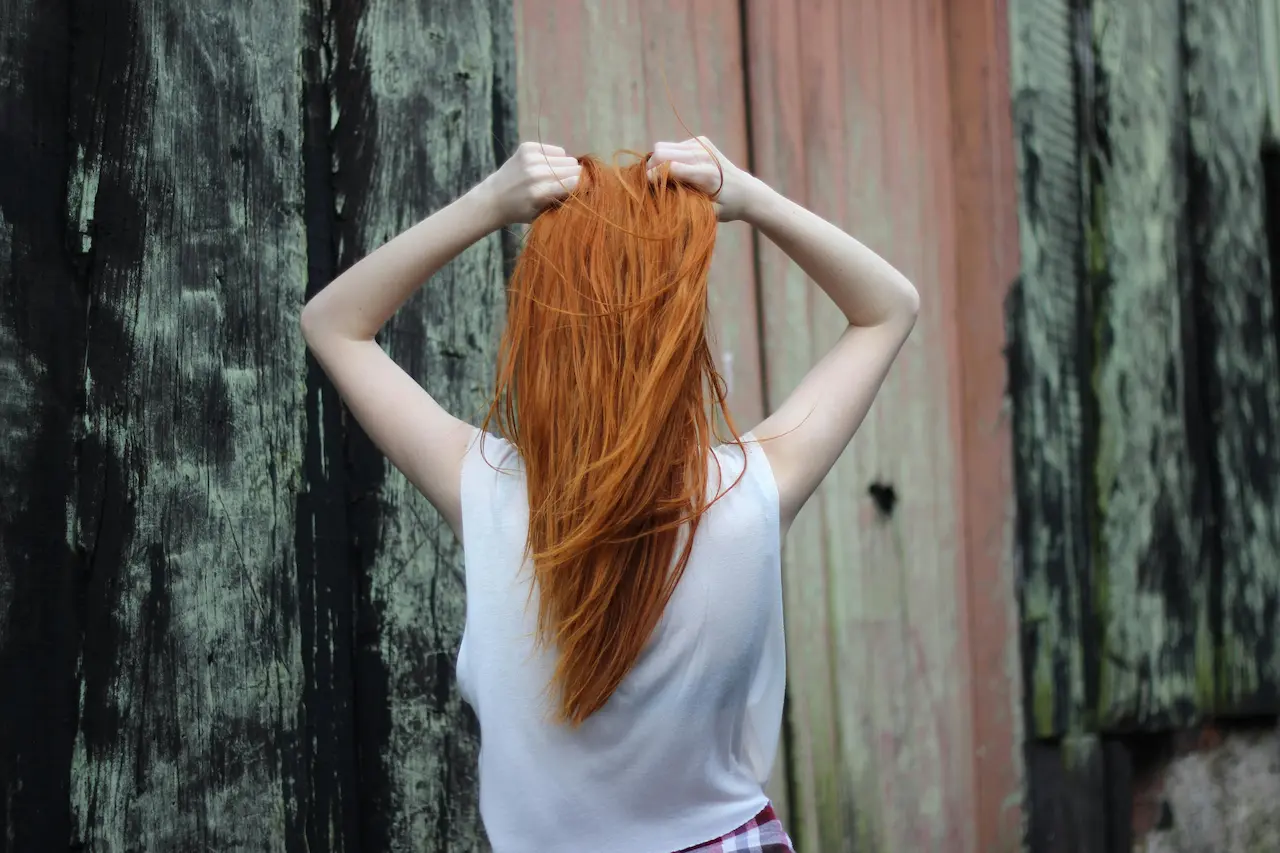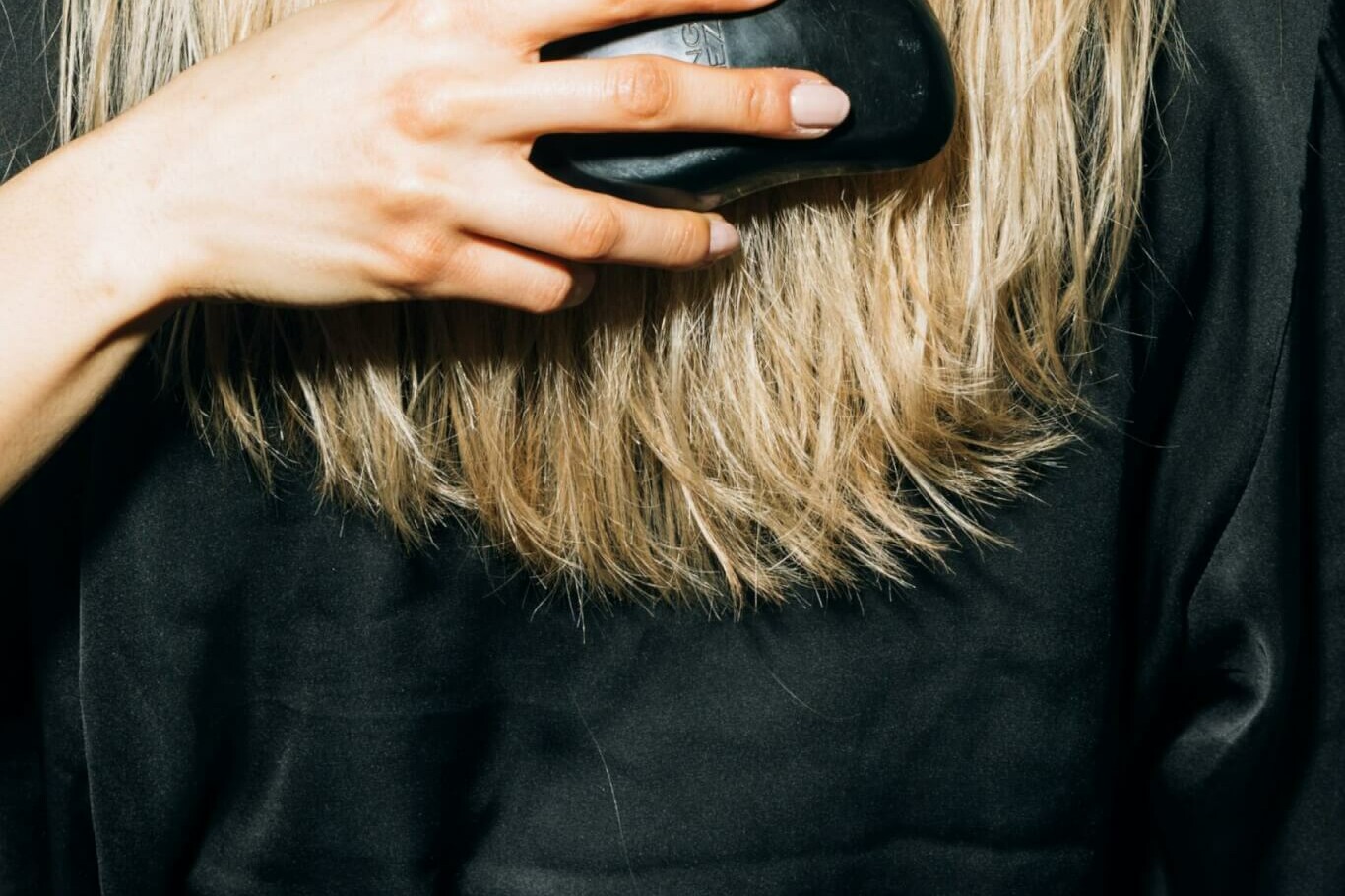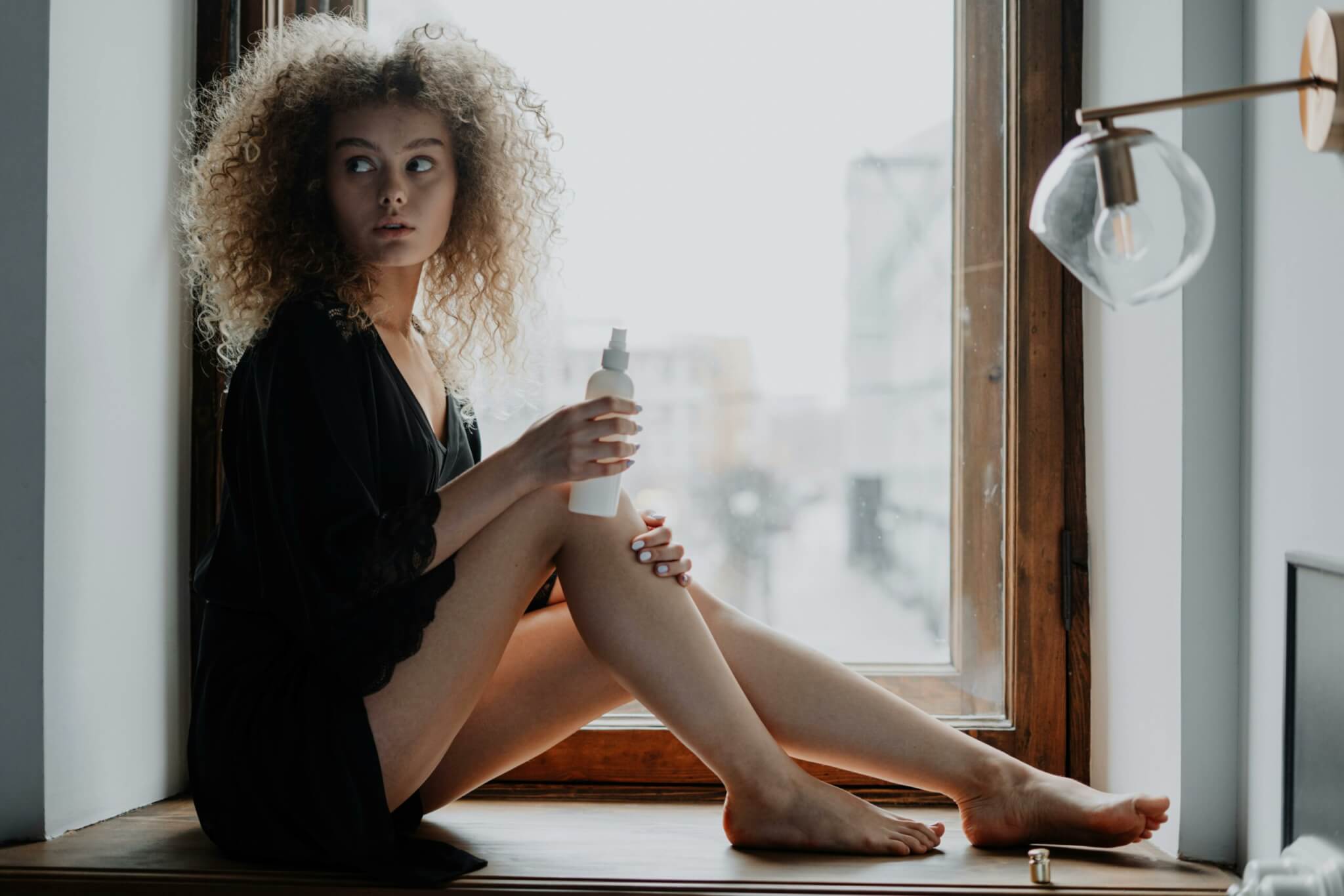Understanding Menopausal Hair Changes
Before diving into strategies for promoting hair growth during menopause, it’s essential to understand the underlying causes of hair changes during this stage.
1. Hormonal Fluctuations
Menopause involves a decline in estrogen and progesterone levels, two hormones that play a crucial role in hair health. These hormonal fluctuations can lead to changes in the hair growth cycle, resulting in:
- Thinning Hair: Reduced estrogen levels can cause hair follicles to spend more time in the resting phase, leading to thinner hair.
- Dryness and Brittle Hair: Lower estrogen can result in reduced sebum production, making the hair dry and prone to breakage.
- Hair Loss: Some women may experience noticeable hair loss during menopause, a condition known as androgenetic alopecia, influenced by genetics and hormonal changes.
2. Age-Related Factors
Aside from hormonal changes, age-related factors can also affect hair health. As we age, hair growth naturally slows down, and the hair strands themselves may become finer and more delicate.
Menopausal Hair Growth Strategies
While menopausal hair changes can be challenging, there are several strategies you can implement to promote hair growth and maintain vibrant, healthy locks during this phase.
1. Balanced Diet
A nutrient-rich diet is the foundation for healthy hair growth. Ensure you’re getting essential nutrients, including:
- Protein: Hair is primarily made of protein, so an adequate intake is crucial.
- Vitamins: B-complex vitamins, especially biotin and B12, support hair health. Vitamin D also plays a role in hair follicle function.
- Minerals: Iron, zinc, and selenium are essential for hair growth and strength.
- Omega-3 Fatty Acids: These promote scalp health and overall hair quality.
2. Hormone Replacement Therapy (HRT)
Hormone replacement therapy, under the guidance of a healthcare professional, can help mitigate some of the hormonal imbalances that affect hair health. It’s essential to discuss the potential risks and benefits of HRT with your doctor.
3. Hair Care Routine
Tailor your hair care routine to cater to the changing needs of your hair during menopause:
- Gentle Shampoos and Conditioners: Use sulfate-free products to prevent further dryness and breakage.
- Scalp Massage: Regularly massaging your scalp can stimulate blood flow, promoting hair growth.
- Avoid Excessive Heat Styling: Minimize the use of hairdryers, straighteners, and curling irons, as excessive heat can damage hair.
4. Stress Management
Stress can exacerbate hair problems. Practice stress-reduction techniques like meditation, yoga, or deep breathing exercises to promote overall well-being and hair health.
5. Supplements
Consider supplements that may support hair growth and reduce dryness:
- Biotin: A B-vitamin that is known to improve hair strength and thickness.
- Collagen: Supports hair structure and can enhance hair’s appearance.
- Omega-3 Fatty Acids: Found in fish oil supplements, these can reduce inflammation and promote scalp health.
6. Scalp Health
A healthy scalp is crucial for healthy hair. Take care of your scalp with these tips:
- Scalp Exfoliation: Remove dead skin cells regularly to improve circulation and create a healthy environment for hair growth.
- Essential Oils: Some essential oils, such as rosemary and lavender, have shown potential for promoting hair growth when applied to the scalp.
7. Gentle Styling
Avoid tight hairstyles that pull on your hair, as this can lead to breakage. Opt for loose styles and avoid excessive use of hairpins or elastic bands that can weaken the hair shaft.
8. Regular Trims
While trimming your hair won’t make it grow faster, it can prevent split ends and breakage, helping to maintain overall hair health.
Conclusion
Menopause brings about hormonal changes that can affect hair health, leading to thinning, dryness, and hair loss for many women. However, by implementing a combination of strategies such as a balanced diet, hormone replacement therapy, a gentle hair care routine, stress management, and supplements, you can promote hair growth and maintain the vibrancy of your locks during this transformative phase of life. Remember to consult with healthcare professionals for personalized advice on managing hair changes during menopause.
References:
- American Academy of Dermatology Association. (n.d.). Hair loss: Who gets and causes. https://www.aad.org/public/diseases/hair-loss/causes/women
- Mayo Clinic. (2021). Menopause. https://www.mayoclinic.org/diseases-conditions/menopause/symptoms-causes/syc-20353397
- Harvard Health Publishing. (2018). Treating female pattern hair loss. https://www.health.harvard.edu/womens-health/treating-female-pattern-hair-loss
Related Articles
September 6, 2025
Scalp Barrier 101 — How to Rebuild What Over-Cleansing Breaks
Your scalp is more than just the skin under your hair — it’s a living…
November 15, 2024
The Art of Detangling: How to Protect Your Wet Hair from Breakage and Split Ends
Detangling wet hair is a common part of many people’s hair care routine, yet…
November 12, 2024
The Hidden Risks of Dry Shampoo: How Overuse Can Impact Your Scalp Health and Hair Growth
Dry shampoo has become a beauty staple for many people, offering a quick and…




